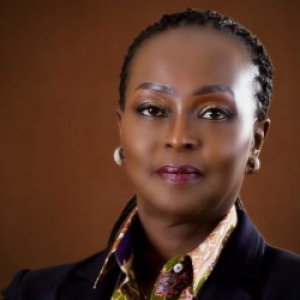Guyana’s Presidency of the UN Security Council in New York
GUYANA CALLS ON SECURITY COUNCIL TO ADOPT RENEWED FOCUS ON CLIMATE CHANGE AS A DRIVER OF CONFLICT AND FOOD INSECURITY
Yesterday (13th February), I was privileged to watch a little bit of history when President Ali chaired an open debate at the UN Security Council on the relationship between climate change, food insecurity and conflict. In putting this agenda before the Security Council, the President signalled Guyana’s determination to make full use of its leadership role in the UN’s highest body over the next two years.
The session (or the 9547th meeting of the Council on Threats to International Peace and Security to give it its full title) took place during Guyana’s Presidency of the Security Council, which extends through the month of February. The event formed part of Guyana’s broader priorities for its tenure on the Security council, which also include conflict prevention, women and global security, and youth and children in peace and security.
At yesterday’s debate, the 15-member council (comprising the ‘Permanent 5’ members and the non-permanent ‘Elected 10’ members) was briefed by the United Nations Secretary-General; the Executive Secretary of the UN Framework Convention on Climate Change (UNFCCC); the Deputy Director-General of the Food and Agricultural Organization (FAO); and a civil society representative from the International Peace Institute. Each reminded the Security Council and Member States of the urgent need to take action on multiple fronts.
In his statement to the Council, Guyana’s President highlighted the multi-directionality of climate-food-conflict links. In Gaza, people exposed to intense violence are facing starvation. In the Sahel, conflict, climate change and food production are already locked in a deadly spiral. In precious forests from the Amazon to the Congo, armed conflict and criminal activities are resulting in deforestation. In the Horn of Africa, millions of people face acute food shortages as drought, failed crops and conflict combine. And wherever conflict rages, land degradation accelerates, pollution balloons, and carbon emissions spike: the damage of a single conflict far outstrips the annual carbon emissions of individual advanced economies.
Such discussions are painful to watch, the testimonies difficult to hear. They also remind us of the importance of protecting and preserving peace where we have it already. Maintaining Latin America and the Caribbean as a continuing ‘zone of peace’ is vital for the prospects of the 670 million people who live here.
Yesterday’s discussions at the Security Council further serve to concentrate minds, including mine, on priority actions closest to home. As Resident Coordinator of the UN Development System in Guyana, that means re-focussing on our food security and climate action efforts.
In this context, Guyana’s hosting of the FAO Latin America and the Caribbean Regional Conference (LARC 38), from 18-21 March, offers a timely opportunity to translate a wide range of food security and food systems concerns into domestic and regional action. Discussions will focus on financing, technological innovations, food waste, and the adaptation and mitigation of the effects of climate change for a sustainable agriculture system and food security.
LARC 38 will also cover financing for national programmes, technology and knowledge transfer, and the issue of nutrition among children in the region. As the host country, Guyana can leverage its leadership role to champion concrete solutions within the region, and I am confident that the event will also make a positive contribution to the CARICOM policy of reducing the Caribbean region’s food import dependence by 25% by 2025.
Next, the Agencies, Funds and Programmes of the UN in Guyana continue to work with national and local stakeholders in a range of food security and climate action programmes. Over the last two years, we have worked with national and local authorities across three central elements of food systems, namely production, consumption and nutrition. Our teams have supported national partners to extend climate-smart agricultural services to more than 17,000 people in Guyana, strengthen statistical capacity on agriculture and household food security, and develop draft legislation on food security.
On climate and environment, we continue to work with stakeholders to strengthen land use regulations and limit land degradation, to support the national drive for land titling for indigenous communities (an effective way to limit deforestation), and to strengthen multi-hazard early warning systems and adaptation plans.
At a time of increased global insecurity, scenes of harrowing human suffering and hunger from around the world, and mounting anxiety about the impacts of climate change, deciding on a course of action is challenging. I commend Guyana for bringing these most wicked of problems to the Security Council chamber, where they must be deliberated. And for those of us working in support of national development Guyana, in my case as part of the UN Development System, the complex issues tabled by Guyana were a humbling reminder of the responsibility we have to people who look to us for answers in such troubling times. Later this year, the UN Secretary General will be convening the Summit of the Future, from 22-23 September, and will seek to advance the New Agenda for Peace, which calls for a multilateral system, with the United Nations at its core, that can indeed generate answers to such pressing issues of our time. I hope Member States will recall yesterday’s session under Guyana’s leadership for guidance and direction.
Speech by


















